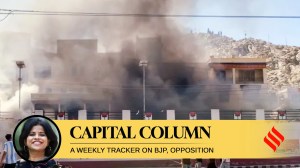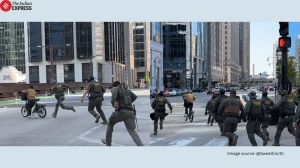Unions come to Buckingham Palace
Buckingham Palace was outraged when royal servants decided to join a trade union to press for higher wages, according to hitherto secret doc...

Buckingham Palace was outraged when royal servants decided to join a trade union to press for higher wages, according to hitherto secret documents withheld for more than 50 years. The papers — released at Britain’s Public Record Office — reveal that wage rises in royal palaces, castles, and other establishments were lower than those outside during the Second World War.
Low paid staff included those with titles such as yeomen of the silver pantry. Coachmen, farriers, and grooms were particularly militant demanding extra money for having to travel from Buckingham Palace to Windsor Castle, and attend the royal family at the Ascot races.
“The staff became disgruntled, began to organise themselves, and finally joined…the Civil Service Union”, noted a Treasury official in 1946. “Palace wages”, he added, “fell behind during the war”.
“It is fairly clear to us”, the Treasury told Sir Edward Bridges, the cabinet secretary, “that the present palace rates are low”.
But Sir Ulick Alexander, Treasurer to King George VI, was not amused. To allow the union to make representations if the king dismissed one of his personal servants would be “intolerable”, he said. “There was no reason why the palace officials should have any truck with the Civil Service Union”, echoed an unidentified colleague.
However, Sir Alan Lascelles, the king’s private secretary, adopted a low profile. “I know very little about the financial and domestic questions involved”, he told Whitehall officials.
Most of the 400 or so royal servants at the time earned less than $580 a year. Though some enjoyed benefits in kind, including grace and favour lodgings, they had to work “indefinite” hours, officials noted. In May 1946, the king agreed to increases of between $107 and pounds $132 a year.
As the dispute raged, the Treasury reminded the palace that “it was a well recognised practice… that employees had a right to represent their grievances to their employer and that if they wished to do so collectively they couldget someone to speak on their behalf”.
A deal was struck when Whitehall warned the palace that a refusal to recognise trade union membership would not do the image of the royal family any good. In return for recognition, the CSU agreed it would keep the deal secret, the Treasury would be the go-between in talks with the palace, and there would be no formal arbitration procedures. If the press got to know about it, then the palace would say that union representation was “quite a normal feature”.





- 01
- 02
- 03
- 04
- 05


























